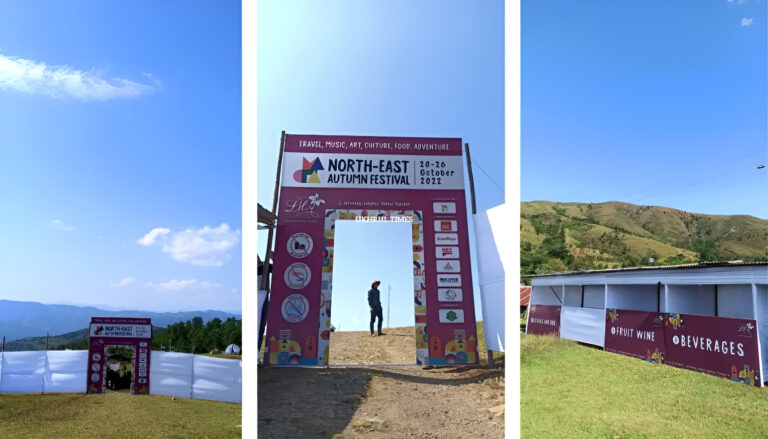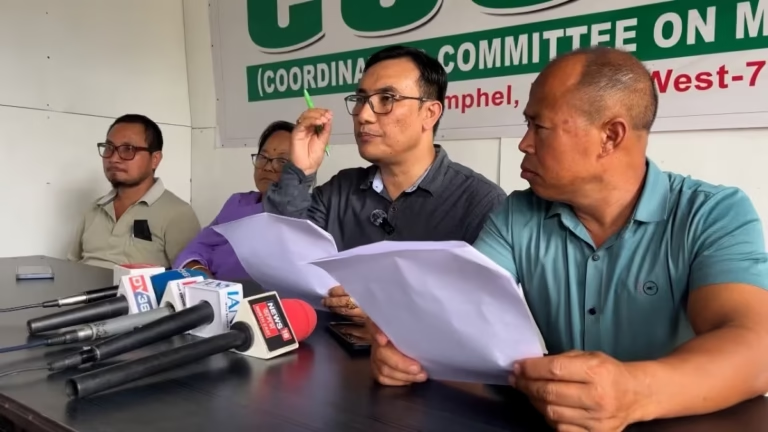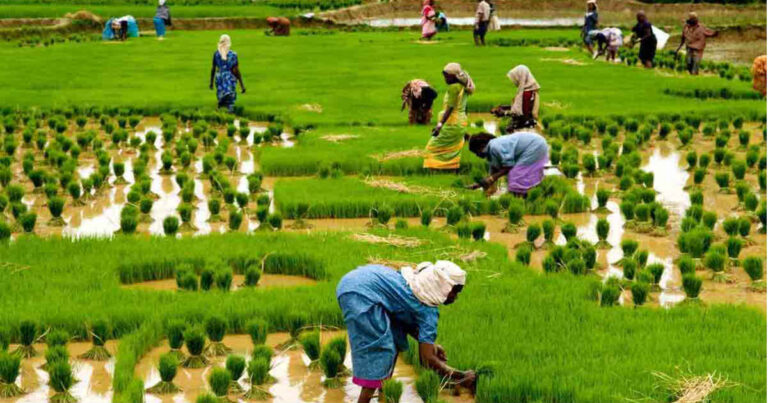UNC Urges Peace, Condemns Violence in Ukhrul: Calls for Dialogue and Reconciliation
The pursuit of peace has always been central to resolving conflicts, especially in regions with a history of unrest. One such plea for peace has come from the United Naga Council (UNC), which recently condemned the violent incidents in Ukhrul, Manipur, and stressed the importance of dialogue and reconciliation as a solution. This comes amid rising tensions and unrest in the area, where ethnic and political divides have led to increased violence. The UNC has called for unity, understanding, and a return to peaceful coexistence.
Summary of the News
The United Naga Council (UNC) has strongly condemned the recent surge in violence in Ukhrul, Manipur. They have urged for calm and encouraged all parties involved to engage in dialogue to resolve their differences. The UNC emphasized that violence is not the answer and that reconciliation is crucial for lasting peace in the region.
The Importance of Peace in Conflict Zones: UNC’s Call for Reconciliation in Ukhrul
Understanding the Context: A History of Ethnic and Political Unrest
Manipur, located in the northeastern part of India, has been a region historically marked by ethnic diversity and conflict. The state is home to several ethnic groups, including the Meitei, Naga, and Kuki communities. Over the years, political disputes, territorial claims, and ethnic divisions have fueled tensions in the region. Ukhrul, a district predominantly inhabited by the Naga community, has been a focal point for such conflicts.
The ethnic divide between the Nagas and other communities in Manipur has often resulted in clashes. These tensions have occasionally escalated into violence, making reconciliation a challenging yet necessary goal. The United Naga Council (UNC), representing the Naga people’s interests, has played a significant role in mediating these conflicts and pushing for peaceful resolutions.
The United Naga Council: Who They Are and What They Stand For
The United Naga Council (UNC) is an influential civil society organization in Manipur, advocating for the rights and interests of the Naga people. Their primary focus is on protecting Naga identity, culture, and political autonomy within the state of Manipur. Over the years, the UNC has taken strong stances on political issues affecting the Naga people, including territorial integrity and governance.
In light of recent incidents of violence in Ukhrul, the UNC has reiterated its commitment to peace and reconciliation. By condemning the violence and calling for dialogue, the council seeks to pave the way for peaceful coexistence between different communities in the region.
Violence in Ukhrul: What Happened?
Ukhrul has recently been a hotspot for violence, with ethnic tensions once again coming to the fore. The district, known for its picturesque landscapes and vibrant Naga culture, has witnessed violent incidents that have disrupted daily life and heightened fear among the local population. While the specifics of the events are still unfolding, reports suggest that clashes between different ethnic groups have resulted in loss of life and property, as well as a growing sense of unease among residents.
The UNC’s statement comes as a direct response to these incidents, urging both sides to refrain from further violence. Their call for peace is not only a moral appeal but also a pragmatic approach to preventing further escalation.
Why Violence is Not the Answer: The Power of Dialogue
In regions marked by long-standing conflicts, violence often seems like a default response to perceived injustices. However, history has shown time and again that violence rarely solves the underlying issues. Instead, it perpetuates a cycle of hatred, revenge, and further conflict.
The UNC’s emphasis on dialogue as a solution is grounded in the belief that peaceful negotiations are the only way to address deep-rooted issues. Dialogue allows for open communication, where grievances can be aired, and compromises can be made. It also fosters understanding and empathy, which are essential for reconciliation.
Reconciliation: A Long and Difficult Road, But Worth It
Reconciliation is not an easy process, especially in a region where mistrust and animosity have built up over decades. However, it is the only path that can lead to lasting peace. Reconciliation requires both sides to acknowledge past wrongs, forgive, and move forward with a commitment to coexist peacefully.
For Ukhrul and the broader Manipur region, reconciliation would mean healing the wounds caused by years of ethnic conflict. It would involve building bridges between communities, fostering mutual respect, and creating a shared vision for the future. The UNC’s call for reconciliation is a crucial step in this direction, but it will require sustained effort from all stakeholders, including political leaders, community members, and civil society organizations.
The Role of Political Leadership in Promoting Peace
Political Solutions: The Need for Inclusive Governance
The violence in Ukhrul, like many other conflicts in India’s northeastern region, is deeply intertwined with political issues. Governance in Manipur has often been a point of contention, with different ethnic groups feeling marginalized or underrepresented. The Naga people, in particular, have long demanded greater political autonomy and recognition of their unique cultural identity.
One of the keys to resolving the conflict in Ukhrul and other parts of Manipur lies in inclusive governance. The state and central governments need to ensure that all communities feel represented and heard. This means not only addressing the political grievances of the Naga people but also working to create an environment where different ethnic groups can coexist peacefully.
The Role of Political Leaders in Peacebuilding
Political leaders play a crucial role in either fueling or diffusing conflicts. In the case of Ukhrul, leaders at both the state and national levels need to take a proactive approach to peacebuilding. This involves facilitating dialogue between different communities, ensuring that grievances are addressed, and promoting policies that foster inclusivity and respect for diversity.
The UNC’s call for dialogue and reconciliation is a timely reminder that political leadership must prioritize peace over conflict. By working together, political leaders and civil society organizations like the UNC can help bring an end to the violence in Ukhrul and pave the way for a more peaceful future.
What Can Be Done to Promote Peace in Ukhrul?
1. Strengthening Community Engagement
One of the most effective ways to promote peace is through community engagement. When local communities come together to discuss their grievances and work towards common solutions, it creates a sense of ownership and responsibility for peace. Community leaders in Ukhrul and other parts of Manipur can play a crucial role in fostering dialogue and promoting reconciliation at the grassroots level.
2. Encouraging Inter-Ethnic Dialogue
Given the ethnic dimensions of the conflict in Ukhrul, it is essential to encourage dialogue between different ethnic groups. By facilitating open conversations, communities can better understand each other’s perspectives and work towards finding common ground. This type of dialogue can help break down stereotypes, build trust, and reduce the likelihood of future conflicts.
3. Promoting Inclusive Development
Economic development can also play a significant role in promoting peace. When communities have access to opportunities and resources, there is less incentive for conflict. In the case of Ukhrul, promoting inclusive development that benefits all ethnic groups can help alleviate some of the underlying tensions.
4. Ensuring Accountability for Violence
To prevent future violence, it is essential to hold those responsible for the recent incidents in Ukhrul accountable. This includes both individuals and groups involved in the violence. By ensuring that justice is served, the government can send a strong message that violence will not be tolerated.
The Road Ahead: A Hope for Lasting Peace in Ukhrul
The recent violence in Ukhrul is a stark reminder of the fragility of peace in conflict-prone regions. However, the UNC’s call for dialogue and reconciliation offers a glimmer of hope. By coming together and committing to peaceful solutions, the people of Ukhrul can begin the long process of healing and rebuilding trust.
Lasting peace will require the efforts of all stakeholders, from political leaders and civil society organizations to local communities. But with a shared commitment to dialogue, reconciliation, and inclusive governance, Ukhrul and the broader Manipur region can move towards a future where violence is no longer the default response to conflict.
FAQs
- What led to the recent violence in Ukhrul?
The violence in Ukhrul is rooted in long-standing ethnic tensions and political disputes between different communities in Manipur. - What is the United Naga Council (UNC)?
The UNC is a civil society organization that represents the interests of the Naga people in Manipur, advocating for peace, dialogue, and political autonomy. - Why is reconciliation important for peace in Ukhrul?
Reconciliation helps heal the wounds of past conflicts and fosters understanding, empathy, and cooperation between different communities. - How can political leaders help promote peace in Ukhrul?
Political leaders can facilitate dialogue between communities, address grievances, and promote inclusive governance to prevent future conflicts. - What steps can be taken to prevent violence in the future?
Strengthening community engagement, promoting inter-ethnic dialogue, ensuring accountability for violence, and promoting inclusive development are key steps towards peace.





